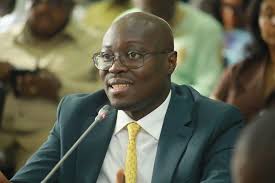
Adnan Adams Mohammed
An economist has called on the government’s economic team to fully exploit resource receipts to make up for revenue gaps that would arise due to tax cut proposals.
The Director of Research at the Institute of Economic Affairs (IEA), Dr John Kwakye, has also indicated that abolishing taxes should come along with measures to plug tax loopholes, broaden the tax net, strengthen tax administration and stem tax evasion.
Sharing his perspective on the move by the Mahama administration to cut some taxes as part of its fulfilling campaign promises, he however believes that leaving betting untaxed will be financially ill-advised and indeed ‘suicidal’.
“Betting will become an increasing part of the economy with a huge tax revenue potential. Leaving betting untaxed would, therefore, be fiscally ill-advised and, indeed, suicidal!”, Dr Kwakye has said.
The Mahama administration is seeking to remove the 10 % betting tax following the promise made during the 2024 election campaign period.
The Finance Minister Dr Cassiel Ato Forson recently reiterated his stance on removing the Betting Tax, arguing that its elimination would not harm the economy.
“Scrapping the Betting Tax will not affect the forward march of the economy,” he said. He added that increasing taxes is not the only way to boost revenue. “You don’t have to increase taxes to increase revenue. What is important is to increase compliance.”
Rather than introducing new taxes, Dr. Forson revealed that he intends to improve compliance with existing tax laws to enhance revenue collection. He further stressed that Ghana’s fiscal challenges cannot be solved solely by increasing revenue but also requires prudent management of expenditures.
“It’s not always about revenue, but expenditure,” he stated.
Dr. Forson emphasised the need to cut wasteful spending, urging decisive action to stabilise the economy. “We need to cut the waste! The time is now. We must work in a way that stabilises inflation, the exchange rate, and creates jobs.”
Dr. Forson also shared his medium-term vision to increase tax revenue as a percentage of GDP from the current 13.8% to between16–18%.
A team from the International Monetary Fund (IMF) was in Ghana last week to have discussions with the government on the ongoing programme.
From, Monday 10th February to Friday 14th, February 2025 the Government of Ghana had discussions with the IMF team led by their Mission Chief for Ghana, Stephane Roudet.
The discussions centred primarily on Ghana’s progress under the IMF-supported Programme and the policy direction of government in the 2025 Budge due to be presented to Parliament on March 10.
Other critical areas for discussion included revenue administration reforms, the energy sector reforms, expenditure rationalisation, and monetary and exchange rate policy.
The Bank of Ghana, Ghana Revenue Authority, the Controller and Accountant General Department and other key institutions were expected to be present in the scheduled meetings.
“The Government of Ghana assures the public of its commitment to prioritising macroeconomic stability, job creation and improved livelihood for the people of Ghana,” a statement issued by the Finance Ministry said.